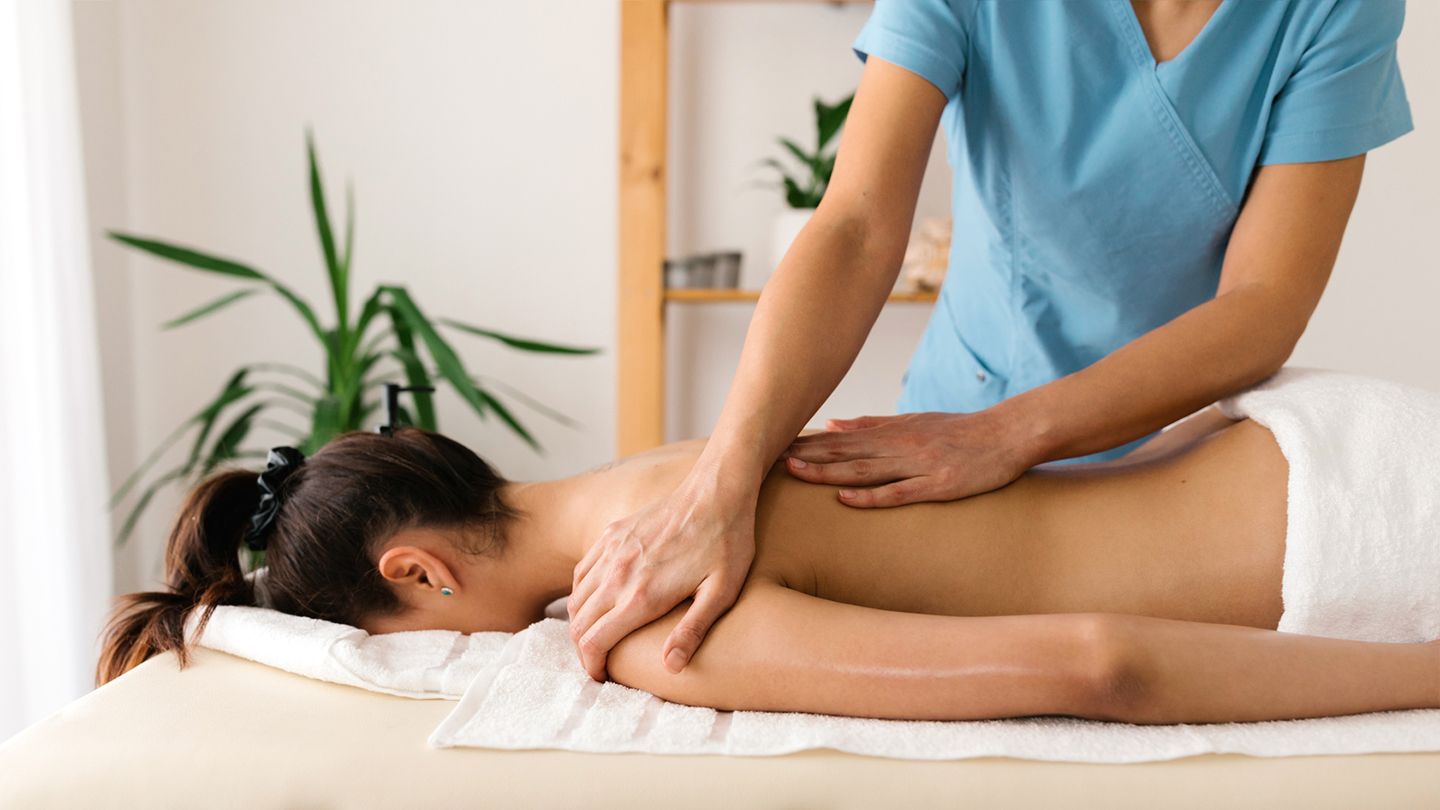After a Thai massage, it’s common to experience some soreness or discomfort in the body. This is due to the deep pressure and stretching involved, which may temporarily strain the muscles and tissues.
However, this discomfort is usually short-lived and should be followed by a feeling of relief and relaxation as the body adjusts to the therapeutic effects of the massage. It’s important to stay hydrated and engage in light stretching to help alleviate any lingering soreness.
Professional masseurs will always tailor the treatment to your body’s needs, so communicate any discomfort during the session for a more comfortable experience.
Understanding Thai Massage
When it comes to massage techniques, Thai massage has gained popularity for its unique and effective approach. Understanding Thai massage involves exploring its techniques, benefits, and how it differs from other forms of massage.
Techniques And Benefits
Thai massage is characterized by a combination of acupressure, yoga-like stretching, and deep tissue massage techniques. The therapist uses their hands, elbows, knees, and feet to apply pressure to specific points on the body, promoting relaxation, improved circulation, and relief from muscle tension.
How It Differs From Other Massages
Unlike traditional Swedish or deep tissue massages, Thai massage incorporates a more active and dynamic approach, involving the recipient in various stretching movements and range of motion exercises. This results in not only physical relaxation but also increased flexibility and a sense of energized well-being.
Potential Effects On The Body
When considering receiving a Thai massage, it’s important to be aware of the potential effects on the body. Understanding what to expect can help you fully appreciate the experience and its benefits. Thai massage involves a combination of acupressure, stretching, and compression techniques, which can have various effects on the body. Let’s delve into the potential effects, including soreness and discomfort, as well as the expected sensations.
Soreness And Discomfort
Soreness and discomfort may arise after a Thai massage, particularly if it’s your first experience or if you have certain tension points in your body. This temporary soreness is a result of the deep pressure and stretching techniques used in Thai massage. However, it’s important to note that this discomfort is not long-lasting and is a natural reaction to the manipulation of muscles and connective tissues. Hydrating adequately post-massage can help alleviate soreness more quickly.
Expected Sensations
- Relaxed Muscles: After a session, you may experience a sense of relaxation and looseness in your muscles.
- Improved Flexibility: Thai massage can enhance your flexibility and range of motion, leading to a sensation of increased mobility.
- Elevated Energy: Many individuals report feeling revitalized and energized after a Thai massage, thanks to the stimulation of blood flow and the release of tension.
- Mental Calmness: Due to the focus on pressure points and the meditative nature of Thai massage, it’s common to feel a sense of tranquility and mental clarity.
Factors Influencing Post-massage Pain
Thai massage pressure may cause pain for sensitive individuals.
Deep pressure can lead to post-massage soreness and discomfort.
Differing pain thresholds influence post-massage body aches.
People with lower pain tolerance may experience more soreness.
:max_bytes(150000):strip_icc()/pregnancy-massage-benefits-contraindications-and-safety-5190485-FINAL-c89f331227f24d5aa5a7e789c13c3a30.jpg)
Credit: www.verywellhealth.com
Expert Tips For Post-massage Relief
After a Thai massage, it’s not uncommon to experience some soreness or discomfort in your body. However, there are several expert tips you can follow to help alleviate the pain and promote faster recovery. By taking simple actions like hydrating well, practicing gentle stretching techniques, using warm compresses, taking warm baths, and allowing yourself to rest and relax, you can ensure a more comfortable and rejuvenating post-massage experience.
Hydrate Well
Proper hydration is essential for promoting healing and reducing muscle soreness after a Thai massage. Drink plenty of water or natural electrolyte-rich fluids like coconut water to replenish your body’s fluid levels. This will help flush out toxins, improve circulation, and soothe the muscles. Aim to drink at least 8 glasses of water throughout the day after your massage.
Gentle Stretching Techniques
To ease any lingering muscle tension, gently stretch the areas that feel sore or tight after the massage. Simple stretching exercises like neck rolls, shoulder shrugs, and gentle backbends can help improve flexibility, relieve stiffness, and enhance the overall benefits of the massage. Be careful not to overextend or strain your muscles and always listen to your body’s cues.
Use Warm Compress
Applying a warm compress to areas that are particularly tender or achy can provide instant relief. The warmth helps to increase blood flow, relax the muscles, and reduce inflammation. Simply soak a towel in warm water, wring out the excess, and apply it to the affected areas for 10-15 minutes. Repeat as needed throughout the day to further alleviate any discomfort.
Take A Warm Bath
A soothing warm bath can work wonders in relaxing both your body and mind after a Thai massage. The warm water helps to promote muscle relaxation, improve circulation, and relieve any residual soreness. Consider adding Epsom salts to your bathwater as they contain magnesium, which aids in muscle recovery.
Rest And Relax
Allow your body the time it needs to rest and recover after a Thai massage. Avoid strenuous activities and give yourself permission to relax. Take the opportunity to unwind, read a book, or indulge in some gentle stretching exercises or meditation. Sleep is also crucial for the healing process, so try to get a full night’s rest to facilitate muscle recovery.
When To Seek Medical Assistance
Thai massage is known for its therapeutic benefits, promoting relaxation and reducing muscle tension. While it is generally a safe and effective treatment, there are instances when seeking medical assistance may be necessary. If you experience persistent or unbearable pain, or notice any injury or unusual symptoms after a Thai massage, it is essential to consult with a medical professional.
Persistent Or Unbearable Pain
If you find that the discomfort or pain you are experiencing lingers after your Thai massage session, it might be a sign to seek medical attention. While it is normal to feel a bit sore or tender immediately after the massage due to the deep pressure applied to your muscles, this discomfort should gradually subside within a day or two. However, if the pain persists or becomes unbearable, it could be an indication of an underlying issue that requires medical evaluation.
Injury Or Unusual Symptoms
Injuries during a Thai massage are relatively rare but can happen. If you notice any sudden pain or discomfort in a specific area, such as your back, neck, or joints, it is crucial to consult a healthcare professional. Similarly, if you experience any unusual symptoms such as dizziness, fainting, severe headaches, or difficulty breathing, it is vital to seek immediate medical assistance.
Besides injuries, other unusual symptoms might be a sign of an allergic reaction or an underlying health condition that needs attention. Keep in mind that everyone’s body reacts differently, so trust your intuition and seek professional help if something feels off.
To ensure your safety and well-being, it is important not to ignore persistent or unbearable pain, injuries, or unusual symptoms after a Thai massage. Consulting with a medical professional will help determine the appropriate course of action, allowing you to address any potential concerns promptly.
:max_bytes(150000):strip_icc()/GettyImages-1438172458-fc10c26db84048b99a3feaa316701fa3.jpg)
Credit: www.health.com

Credit: www.facebook.com
Frequently Asked Questions On Does Body Hurt After Thai Massage
Is It Normal To Feel Pain After A Thai Massage?
It is normal to feel pain after a Thai massage due to deep tissue manipulation.
What Happens To Your Body After A Thai Massage?
After a Thai massage, your body may experience improved flexibility, reduced muscle tension, increased energy levels, and enhanced circulation. The massage can also promote relaxation and alleviate stress.
Does A Thai Massage Release Toxins?
Yes, a Thai massage can release toxins through the body’s natural processes. The massage techniques help stimulate circulation and lymphatic flow, aiding in the release of toxins from the muscles. This can result in improved overall well-being and relaxation.
What Are The Disadvantages Of Thai Massage?
Disadvantages of Thai massage may include soreness, bruising, discomfort with stretching, and potential injury if not performed correctly.
Conclusion
After a Thai massage, experiencing body soreness is normal. Understanding the potential discomfort post-massage can help manage expectations. Stay hydrated, rest, and communicate with your therapist for a more comfortable experience. Embrace the benefits of Thai massage for overall well-being.
Your body will thank you.


